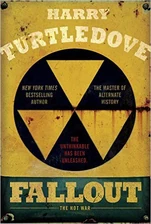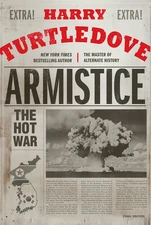| ||||||||||||||||||||||||||||||
Admiral of the Fleet Bruce Austin Fraser, 1st Baron Fraser of North Cape GCB, KBE (5 February 1888 – 12 February 1981) was a senior Royal Navy officer. He served in World War I and saw action during the Gallipoli Campaign and took part in the internment of the German High Seas Fleet at the end of the War. He also served in World War II initially as Third Sea Lord and Controller of the Navy and then as Second-in-Command and afterwards as Commander of the Home Fleet, leading the force that destroyed the German battleship Scharnhorst. He went on to be First Sea Lord and Chief of the Naval Staff in which role he assisted in establishing NATO and agreed to the principle that the Supreme Allied Commander Atlantic (SACLANT) should be an American Admiral, in the face of fierce British opposition.
Bruce Fraser in The Hot War[]
Lord Fraser was the British First Sea Lord during World War III. In April 1951, the Soviet Union smuggled an atomic bomb into the Suez Canal, rendering it useless. Lord Fraser immediately called U.S. Secretary of Defense George Marshall to warn him to place the Panama Canal on alert, to no avail: the Panama Canal had already been hit. In fact, Marshall had been on the verge of calling Fraser to warn him about the Suez Canal.[1]
Literary comment[]
While Fraser is not identified, there is no reason to think someone else was First Sea Lord.
References[]
- ↑ Bombs Away, pgs. 291-294.
| Military offices (OTL) | ||
|---|---|---|
| Preceded by Sir Reginald Henderson |
Third Sea Lord and Controller of the Navy 1939–1942 |
Succeeded by Sir Frederic Wake-Walker |
| Preceded by Sir John Tovey |
Commander-in-Chief, Home Fleet 1942–1944 |
Succeeded by Sir Henry Moore |
| Preceded by Sir James Somerville |
Commander-in-Chief, Eastern Fleet 1944 |
Succeeded by Sir Arthur Power |
| Preceded by Sir Geoffrey Layton |
Commander-in-Chief, Portsmouth 1947–1948 |
Succeeded by Sir Algernon Willis |
| Preceded by Sir John Cunningham |
First Sea Lord 1948–1951 |
Succeeded by Sir Rhoderick McGrigor |
| Preceded by The Lord Tovey |
First and Principal Naval Aide-de-Camp 1946–1948 |
Succeeded by Sir Henry Moore |
| |||||||||||||||||||||



